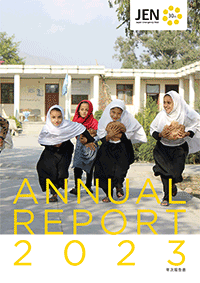Security Incident in Za’atari Refugee Camp
Established in July 2012, Za’atari Refugee Camp will soon enter its third year of operation. Though the security situation in the camp was volatile during the first year, close collaboration with the Jordanian police, strong camp management, and sufficient services offered by various agencies and organizations have fostered a sense of stability in the camp and the camp had not seen any major security incident in several months.
[Everyday lives at Za’atari refugee camp in April 2014]

On Saturday, 5 April, however, an incident broke out in two districts of Za’atari refugee camp, which began from a dispute between the camp police and refugees living in the district. The incident quickly escalated and attracted more than 3,000 refugees living in the neighboring areas to join the riot. A few tents and caravans were burned during the riot and many people, including close to 25 police officers, were injured and one refugee died. Causes of the riot are still under investigation.
[Pictures of smoke in the camp]

As soon as the fight broke out, all staff working for international NGOs were reallocated to a safe space to ensure security. Since the fight broke out at night, JEN only had 2 staff working the night shift in distribution. Though the incident lasted one night and was limited to a few districts in the camp, all camp staff and managers were instructed to remain outside of the camp the following day to ensure safety. By Sunday afternoon, JEN was able to mobilize 2 distribution staff to begin clothes distribution in the camp, as the bus carrying new refugees was scheduled to arrive to the camp.
The incident was limited to two newer established districts of the camp, where the majority of residents are recent arrivals to the camp and the services provided are not as comprehensive as the older parts of the camp – a reminder that everyday frustration has the potential to cause security incidents.
In a refugee camp that spans over 6 square kilometers accommodating over 100,000 refugees, differences in the availability and quality of services based on districts is unfortunate, but inevitable. To ensure services offered match the needs of the community, JEN employs community mobilizers who regularly work with refugees to conduct hearings related to issues and needs in the community, as well as to respond to questions.
【JEN is now accepting donations. Your help would be very much appreciated.
DONATE here】

![Jordan[Syrian refugees] Blog](/en/project/images/mainimg_project_jordan.jpg)




